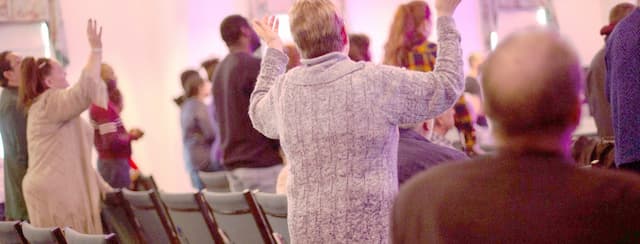Kingdom culture (Ephesians 4:17–24)
Radical inclusivity is the good news of Ephesians. The Jewish writer rejects the use of labels like “uncircumcised” to marginalize people of other nations (2:11). Gentiles are no longer excluded from the covenant people: “no longer foreigners and strangers, but fellow citizens” (2:19).
Equality flows out of the gospel: “through the gospel the Gentiles are heirs together with Israel” (3:6). King Jesus commissioned the writer “to preach to the Gentiles the boundless riches of Christ” (3:8).
So, this comes as quite a shock:
Ephesians 4 17 So I tell you this, and insist on it in the Lord, that you must no longer live as the Gentiles do, in the futility of their thinking. (NIV)
What’s the problem? Many gentile practices were repulsive to Jews. Which ones does our author have in mind?
- Diet? Gentiles absorbed unclean food (like pork) into their bodies, making them unclean.
- Idolatry? Gentiles served many gods, becoming puppets of other powers (2:2).
- Sexual practices? Gentiles pursued their lusts in shameful ways (2:3), instead of living faithfully with their partners.
- Greed? Gentiles were dishonest, taking rather than contributing, refusing to stop for the Sabbath.
- Violence? Gentiles had warred against God’s people, hostilities the Messiah came to resolve (2:14-17).
Are some of those just cultural stereotypes? What does the writer mean by insisting that people of other nations must change their lifestyle?
Let’s be clear. The writer is not saying that gentiles must behave like Jews. He views his own people as just self-absorbed and disobedient as the nations (2:3).
Here’s the issue. Radical inclusivity demands change. We can’t go on treating each other badly, and then congratulate ourselves on how inclusive we’re being. The gospel is the good news of Jesus restorative kingship, so responding to the gospel is a change of allegiance. My allegiance can no longer be to myself and my mob; it is to Jesus, as Lord of all people.
I cannot smuggle my existing culture into the life of Jesus’ kingdom. The Jewish Messiah extended citizenship to the nations, and requires us to live as citizens of his kingdom. On the Jewish side, Galatians explains that God’s people are no longer defined by the boundary markers that separated Jews from gentiles (kosher food laws, Sabbath observance, circumcision, and ethnicity). On the gentile side, Ephesians insists that this is a complete change of culture.
When someone follows Jesus, you can see the radical reversal. We’re accustomed to living for the self, pursuing what we want (our lusts), as if consuming could satisfy us. That’s not how God’s anointed lived: he lived not for self-gratification, but to benefit us. He gave his life for the restoration of humanity. That’s the culture of his kingdom: a people who give their lives for each other, so humanity is growing towards the mature way of life revealed in him, “attaining to the whole measure of the fullness of the Messiah” (4:13).
That radical reversal of life direction is the contrast in these two paragraphs:
Ephesians 4:17-24 (paraphrased, compare NIV)
17 In light of what we’ve been saying (the restoration of humanity that God is achieving in his anointed), I insist that you can no longer live as if it were business-as-usual for the nations. 18 They’d gone to the dark side in their thoughts, alienated from God’s life through the ignorance within them, through the callousness of their heart. 19 Having desensitized themselves, they gave themselves up to sensuality, expressed in unclean actions, constantly consuming.
20 That’s not the Christ you learned, 21 assuming you heard him and were taught the truth in Jesus. 22 His truth sets you apart as a different culture to the old humanity that was corrupted by desires and deception, 23 to be renewed in the spirit of your mind, 24 to dress in the new humanity from God, created in his true righteousness, holiness, and truth.
Self-orientation demeans others, and so dehumanizes us. It’s the culture of consumption, fighting each other to get more. That’s the history of the world. It’s the dark lie that’s destroying us.
We realize that when we see Jesus. No self-seeking in him. He didn’t live to fulfil his own desires; he lived for our sakes. In the culture of our King, we learn to be human. We discard our self-oriented culture like worn out rags, garments that no longer fit us. We put on a new culture, reflecting God’s character, giving each other justice, pure devotion, the authentic life revealed in Jesus.
The reason we can’t keep living like the nations is that we’re under a new king, and he’s creating a new culture for humanity. His radical inclusivity transforms us. In the name of the king, Scripture insists we exchange our previous posturing and positioning for his kingdom culture.
Related posts
- Spiritual formation (Eph. 4:1–6)
- Becoming human: life in Christ (Eph. 4:1-16)
- Being good news (Eph. 4:1-6)
- Empowering the king’s servants (Eph. 4:10-13)
- The kingdom goal (Eph. 4:14-16)
- Good news of peace (Eph. 2:11-22)
Seeking to understand Jesus in the terms he chose to describe himself: son of man (his identity), and kingdom of God (his mission). Riverview College Dean
View all posts by Allen Browne





